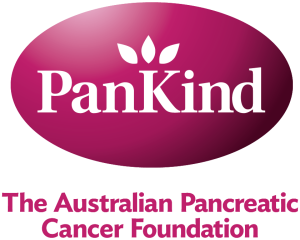Biological markers to aid treatment options

A new study supported by the Avner Foundation has found biological markers which could help inform better treatment options for patients with Pancreatic Cancer.
The study, conducted at Royal North Shore Hospital and published in the European Journal of Surgical Oncology, showed that a new panel of proteins taken from tumours could more accurately inform prognosis and the best possible treatments for patients with early stage Pancreatic Cancer.
Currently, 60% of patients who undergo surgery for Pancreatic Cancer experience cancer recurrence tragically within six months. For these patients, their best option might not be to have surgery right away, but instead try alternative or combination treatments first.
“We are increasingly understanding that not all pancreatic cancers behave the same,” said Dr Christopher Nahm, the study lead author, who is currently undertaking his PhD with Australian Pancreatic Centre surgeons Dr Anubhav Mittal and Professor Jas Samra.
“Whilst some patients live many years without their cancer recurring after surgery, others unfortunately survive less than a year.”
Knowing the type of Pancreatic Cancer and getting a more accurate prognosis before going through surgery, according to Dr Nahm could help to “see if this group of patients would benefit from alternative treatment strategies (e.g. neoadjuvant chemotherapy prior to surgery).”
Having chemotherapy or chemoradiotherapy prior to surgery is currently being investigated as a newer and potentially more effective treatment option for some people, compared to surgery alone.
However, for other patients the new biological markers might indicate a better prognosis, and for these immediate surgery is crucial. They also need to be informed and the results from this study could help clinicians achieve that.
“We are now undertaking a new study to understand how we can use this biomarker panel to best tailor our treatment strategy to individual patients to maximise their overall survival,” said Dr Nahm.
The study used a bioresource called the Avner Pancreatic Cancer Foundation BioResource which is made possible by the Avner Foundation.
Resources like these and funding for Pancreatic Cancer research are key to making survival possible.
Nahm CB, et al., Biomarker panel predicts survival after resection in pancreatic ductal adenocarcinoma: A multi-institutional cohort study. European Journal of Surgical Oncology (2018), https://doi.org/10.1016/j.ejso.2018.10.050



